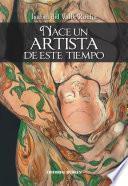New Disorders Of The Gaze: Abjection, Alterity And Agency In The Work Of Victor Gaviria
Resumen del Libro

This dissertation analizes cinema, poetry and testimonial of the Colombian author Victor Gaviria. In these distinct modes of expression, he renders a complex of contemporary events and manifests both a philosophical and a pragmatic position. Gavirias cinematic productions synthesize his work on poetry and testimonial, fusing ethics and aesthetics. Victor Gaviria works with natural, non-professional actors from the streets, orphanages and slums of Medellin, Colombia. These forgotten children act themselves in the films Rodrigo D. No future 1990, La vendedora de rosas, 1998 and narrate the testimonial El pelaito que no duro nada 1991. Gavirias style of direction and writing allows the inclusion of the childrens own selves and imaginations, though they follow the dramaturgical direction of the filmmaker, the children perform as they would in their daily lives: with their own gestures, body movements and their own sociolect, el parlache. These natural actors form part of an urban subculture within Medellin often referred to as the desechable (disposable) by el ciudadano pleno (the mainstream citizen). This term connotes the ephemeral and killable category of human beings born into communal fragmentation, socio-economic misery, and urban violence. They are destined to struggle in chaotic circumstances where death becomes the only way out. The disposable live short lives, knowing full well there is no room for them in the legitimate and normalized public spheres of production and exchange of cultural and material capital. They are juveniles living on the streets, some of them are pistolocos (hit men paid by drug dealers), traquetos (drug mules) while most of them are also sacoleros (glue sniffers). The purpose of this study is to show that the disposables state of abjection is perceived as a danger, both physical and moral—a presence that must be expelled/eliminated from the social body. I use the theory of the abject proposed by Julia Kristeva. In…









